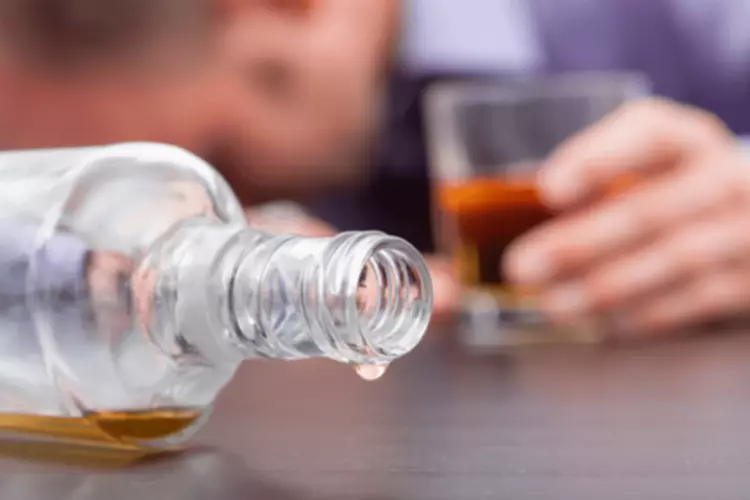All treatment sessions included a breath test to ensure that participants had .000 BAC; if not, the session was rescheduled. Sessions began with reviews of cravings, high-risk situations, and any alcohol consumption between each session. There was a brief mention of AA attendance and coverage of drink refusal skills and relapse prevention. Based on the content of treatment protocols, anger regulation material comprised approximately 0.4% of the AAF condition and 64.2% of the AM condition.
3 Predicting Treatment Outcomes
If drinking causes a blackout, you may not even remember being aggressive unless someone reminds you about it. By perpetuating such behavior, people can end up damaging meaningful relationships — yet another effect of alcohol-based aggression. No matter the reasons behind feeling anger when drinking alcohol, such behavior can be harmful. By consistently becoming angry or belligerent when you drink, you put yourself and others at risk. Therefore, seeking a solution for alcohol-related aggression is essential for your future health and safety.
Understanding the Relationship Between Alcoholism and Anger
The connection between alcoholism and anger is a complex and multifaceted one. In many cases, individuals with underlying anger issues may turn to alcohol as a means of coping with or suppressing their intense emotions. The temporary relief and disinhibition provided by alcohol can provide a false sense of control, only to lead to more intense anger outbursts and a deepening of the problem. If you recognize your own behavior in the description of intermittent explosive disorder, talk with your doctor or other health care professional about treatment options.
Strategies for Coping with Anger and Maintaining Sobriety
If anger is a symptom of someone’s mental health disorder, alcohol can intensify the anger to dangerous levels. Instead of being a natural emotion, someone with an alcohol use disorder (AUD) will express anger to avoid dealing with unpleasant or adverse circumstances, including the addiction. This has an effect on the life of the person exhibiting this consistent anger. It makes people — even their closest friends — less willing to spend time with them. It can have a major impact on their family members’ quality of life and even be a detriment to the healthy development of any children they have. There are a number of cognitive, neurobiological, and social factors that can influence how alcohol affects aggression.
- Finally, despite positive ratings of treatment satisfaction, attendance was less than ideal for both interventions.
- Analyses utilized the intent-to-treat sample, i.e., all participants without regard to attendance and treatment completion.
- Before you realize it, you can find yourself in a full-blown abusive relationship.
- In most cases, women are at a higher risk of experiencing alcohol-related domestic violence from male partners.
How to find support for anger and alcohol misuse
In this piece, we set out to understand why some people change into the worst form of themselves when they drink alcohol, explore how it affects their lives and the lives of the people closest to them and discuss what actions can be taken to limit the damage. Research has shown that thought suppression may contribute to alcohol-related aggression. One study supporting this finding enlisted 245 men with a history of heavy episodic alcohol use (Berke et al., 2020). They completed surveys assessing their endorsement of traditional masculine norms, use of thought suppression, and both trait and alcohol-related aggression. It was found that thought suppression mediated the association between the toughness masculine norm and alcohol-related aggression. Another study of 249 heavy drinkers similarly found that alcohol intoxication predicted higher levels of IPV in those who reported low psychological flexibility (Grom et al., 2021).
Future research should assess gender as a moderator of treatment outcome and use that information to inform the content of alcohol-adapted anger management for alcohol dependent men and women. Alcohol Myopia Theory also makes the counterintuitive prediction that alcohol intoxication can actually decrease aggression, even below that of sober individuals. Specifically, in a situation where non-provocative cues are most salient, the narrowed attentional capacity of the inebriate will be focused on those cues, leaving little space in working memory to focus on less salient provocative cues. In contrast, sober persons in the same situation possess enough working memory to allot attention to provocative and non-provocative cues, thus increasing their risk of aggression above that of intoxicated persons. Data support this counterintuitive prediction 17, 18, 24, ••25, 26, which carries compelling implications for interventions designed to prevent alcohol-related aggression 27.
Health Challenges
This disorder also involves having to drink more to get the same effect or having withdrawal symptoms when you rapidly decrease or stop drinking. Alcohol use disorder includes a level of drinking that’s sometimes called alcoholism. There may be very little you can do to help someone with AUD until they are ready to get help, but you can stop letting someone’s drinking problem dominate your thoughts and your life. It’s OK to make choices that are good for your own physical and mental health. Although no objective indicators of other substance use were alcoholism and anger obtained (e.g., urine screens), participants were asked whether they had used illicit substances. For the six-month baseline period, 64.5% of the sample reported no illicit drug use, and another 10.5% of the sample reported average use at less than one time per month; there was no significant between-condition difference.
If you find it hard to control your drinking or anger, consider professional help. Support groups or addiction counseling can tackle the underlying issues effectively. If you’re close with someone who has alcohol use disorder (AUD), it can be difficult to know what to do to minimize conflict and stress, support your loved one, and tend to your own needs at the same time. I3 Theory (“I-Cubed”) is a multifactorial meta-theory that predicts myriad behaviors, including aggression ••7, 8.
Loving Someone With Alcohol Use Disorder—Dos and Dont’s
- Alcohol had minimal impact on aggression for those who thought about future consequences.
- These complications affect several bodily systems, including the GI, neurological, cardiovascular, and endocrine systems.
- Specifically, it found that problematic drinkers may be more likely to attend to aggressogenic stimuli while intoxicated, and that is, they were more likely to experience certain cues as aggressive.
- The Kelly et al. (2011) secondary analyses of the Project MATCH data indicate that attending AA meetings may reduce depressive symptoms, thereby improving drinking outcome.
If you’re concerned about someone who drinks too much, ask a professional experienced in alcohol treatment for advice on how to approach that person. Finally, despite positive ratings of treatment satisfaction, attendance was less than ideal for both interventions. Analyses utilized the intent-to-treat sample, i.e., all participants without regard to attendance and treatment completion. Potential modest treatment responses among clients with little or no exposure to treatment may have obscured positive effects for those receiving all or nearly all of the intervention. Both treatments were delivered by female, masters-level social workers in accordance with treatment manuals for each condition; both therapists delivered both treatment protocols.
IOP Therapy: Is It Really Worth It?
In addition to potential mental health disorders related to difficulties managing anger, there are several physical side effects of unchecked and chronic anger. This activates the stress response, which speeds up heart rate, respiration, and blood pressure, and increases body temperature. Stress also affects focus and attention abilities, and heightens energy while decreasing appetite and sleep functions. Have family members or others mentioned concerns about your alcohol consumption?





